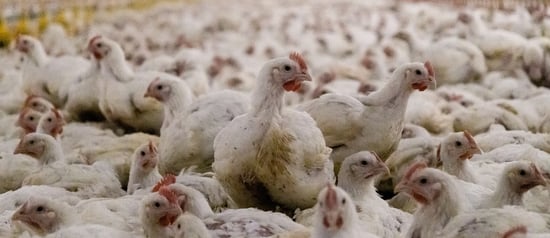
What animal fathers teach us about compassion and protection
Blog
This Father’s Day, we’re shining a light on some of the most devoted, surprising, and hard-working dads in the animal kingdom.
From frogs that carry their babies on their backs to sea horses that give birth, animal fathers come in all forms and their commitment often goes unnoticed. While we celebrate human dads, it’s also worth recognising the many animal dads out there doing the heavy lifting for their families.
💙 Seahorse dads give birth
This is quite the plot twist but it’s the male seahorse who carries and gives birth to the young. After the female transfers her eggs into his pouch, the male incubates them, sometimes hundreds at a time, until they’re ready to be released into the ocean.
It’s a unique role reversal, and one of the clearest examples of paternal care in the natural world.
🐸 Frogs that piggyback their young
The Darwin’s frog is another standout father. Once the eggs hatch, the male carries his tiny tadpoles in his mouth or vocal sac until they’re fully developed offering safety and a strange sort of amphibian parenting all in one.
🐧 Penguin dads tough it out
In the frozen wilds of Antarctica, emperor penguin dads take on a mammoth task. After the female lays a single egg, she returns to the sea to feed and it’s the male who keeps the egg warm by balancing it on his feet for two full months in sub-zero temperatures.
He doesn’t eat during this time, relying on stored body fat to survive the long wait.
🦁 Lions have a complex fatherhood
In lion prides, dominant males defend their group, including cubs, from rival males. But lion fatherhood is complicated. While some males play little role in raising cubs, others groom, rest, and play with them, building bonds and teaching them important social behaviours.
🐓 Millions of roosters don't get to meet their chicks
In factory farms, roosters are largely absent. In the egg industry, male chicks are killed shortly after hatching because they can’t lay eggs. In meat production, chickens are bred for fast growth, and both sexes are raised together but never get the chance to be parents and engage in their natural behaviours.
Here are some of the behaviours roosters would exhibit if given the chance:
-
Roosters are protective: They’re known to guard hens and chicks from predators, sounding alarm calls and physically defending them when needed.
-
They help maintain order: Roosters often play a social role within a flock, breaking up fights or keeping the peace.
-
They may lead chicks to food: While hens do the majority of chick-rearing (brooding, teaching feeding), roosters have been observed escorting the group and occasionally helping guide chicks toward food sources.
So, while hens are the primary caregivers, roosters do contribute to the safety and social structure of the family unit especially in small, natural flocks.
In contrast, industrial chicken farming removes this entirely. Most roosters are never even born in the egg industry (killed as male chicks), and in broiler systems, there's no opportunity for parental behaviour from either parent.
Call for an end to cruel factory farming
Sign our petition to the UK government and let them know that there is no future for factory farming.
